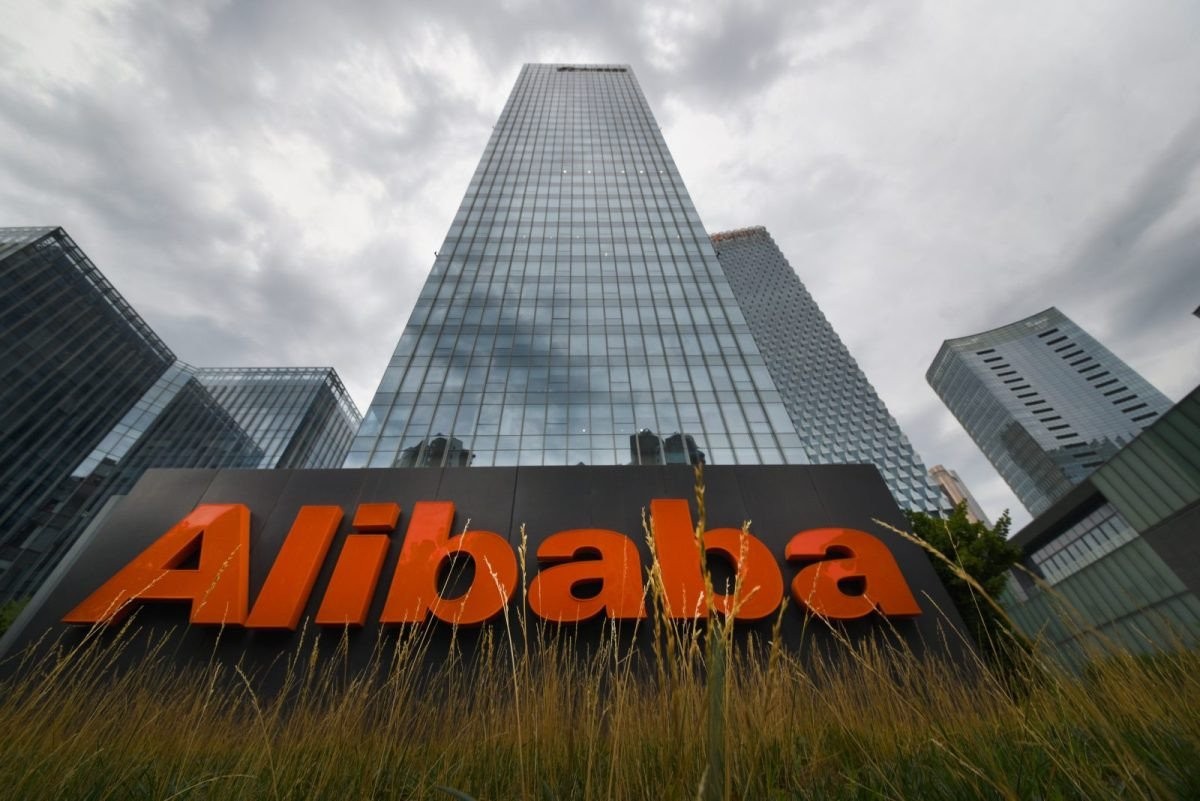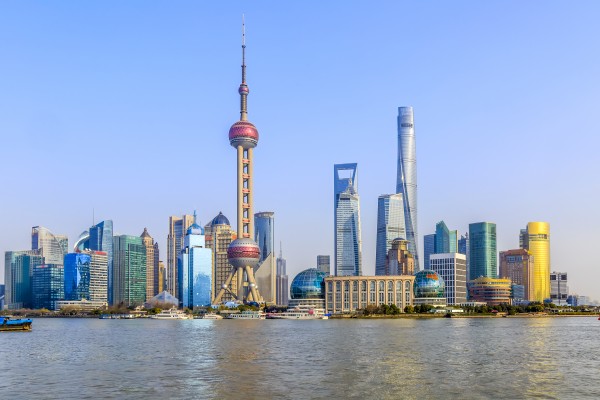Review №24 on Chinese Antitrust News from BRICS Antimonopoly Centre Experts
- Penalties for 28 mismatched M&A
- Authorities discuss data breach with Alibaba
- State Council to Submit Draft Amendments to Anti-Unfair Competition Law
- SAMR delegates authority to review M&A transactions
- Streaming Sales Regulation Guide
- SCMP: AI in the judiciary
- Chinese Embassy on investigations against Vivo
- World Internet Conference established
- 67 games received licenses
- Forbes named Vipshop the best employer in China
- Effective integration of central state-owned companies
- Creation of demonstration zones of Internet regulation
- Ecosystem for the development of AI in Beijing
Penalties for 28 mismatched M&A
SAMR published a series of decisions on 28 economic concentration transactions whose participants did not file a petition, although the transactions met the applicable notification criteria. The list of violators includes Tencent (12 acquisitions) and various divisions of Alibaba (5 acquisitions). Almost every case was subject to a fine of 500,000 Chinese yuan (≈$75,000). The market regulator said that as the current (enhanced) regulatory regime becomes the norm, companies are becoming more conscious of M&A notifications and are proactively checking their transaction history by reporting pending applications to the competent authorities.
Source: SAMR
Authorities discuss data breach with Alibaba
Alibaba's cloud division has been called to a meeting with Shanghai authorities to discuss what could be one of the largest data breaches of nearly 1 billion users, according to The Wall Street Journal. The stolen data from the Shanghai police database was stored on the Alibaba cloud platform. There were no official comments about the meeting from either side. After identifying the leak, Alibaba engineers temporarily blocked access to the hacked database and launched a code review. The cause of the leak has not yet been identified. According to the WSJ, the stolen data was stored in the "cloud" using outdated technologies, and there were also no basic security settings.
Source: WSJ
State Council to Submit Draft Amendments to Anti-Unfair
Competition Law
The State Council of the People's Republic of China has published a legislative action plan for 2022. The list includes the development or revision of 16 documents, including the Internet Protection of Minors Regulation, the Internet Data Security Management Regulation, and the Patent Law Enforcement Regulations. In addition, it is planned to submit to the Standing Committee of the National People's Congress (the country's highest legislative body) a draft new version of the law "On Combating Unfair Competition" for consideration, as well as to develop a regulation on the regulation of listed companies.
On June 24th, the NPC Standing Committee approved the amendments to the Antimonopoly Law of the People's Republic of China. This is an important milestone in the history of the country's antitrust law - the Antimonopoly Law was adopted in 2008 and has not been amended since.
Source: Gov.cn
SAMR delegates authority to review M&A transactions
From August 1st, five local market regulation departments (Beijing, Shanghai and Chongqing, as well as Guangdong and Shaanxi provinces) will test applications for economic concentration transactions to which the simplified procedure applies. Since the entry into force of the Antimonopoly Law of the People's Republic of China, the antimonopoly body of the State Council has managed to consider more than 4,500 mergers and acquisitions with a total value of over $7.3 trillion). The transfer of some of these powers, albeit in a trial mode, will help strengthen the mechanism of two-level (central and local) law enforcement, and also partly simplify the administrative procedures associated with such transactions. As part of the trial period, SAMR will instruct designated offices to review individual transactions in a simplified mode and make a final decision based on their recommendations.
Source: SAMR
Streaming Sales Regulation Guide
The Shanghai Market Authority has published a streaming sales regulation guide to combat click farms, false advertising and other unfair practices. Streaming platforms will be required to create a system of "black lists" of violating streamers. In addition, it will be forbidden to lure customers into live broadcasts using unsubstantiated slogans: for example, “the lowest prices on the Internet” or “the lowest prices in history.” The list of prohibitions also includes the sale of goods and services related to pornography or violence to minors, the advertising of “miracle” drugs, and the illegal extortion of funds from the elderly in the form of investments or for the purchase of real estate.
Source: Russian.people
SCMP: AI in the judiciary
The SCMP, citing Xu Jianfeng, director of the information center of the Chinese Supreme Court, reports that the intelligent judicial system is already used by absolutely all judges in the country and takes part in every decision. It works on the basis of machine learning technology - it automatically checks relevant cases, recommends applicable laws and regulations, drafts documents and corrects recognized "human" errors. The application of the system has reduced the workload of employees by a third, and the public has saved more than $ 45 billion. Judges are required to consult with the system in each case: a written explanation will be required to refuse machine recommendations. The system is also connected to the base of the social rating of citizens. Zhang Linghan, a professor of law at the China University of Politics and Law, warns that the rise of AI could lead to a world where people are controlled by machines: this may improve the efficiency and fairness of work to some extent, but “with the growing dependence on technology, people will gradually lose their free will ". It would also concentrate too much power in the hands of code and algorithm developers and database operators, she said: “We need to be aware of the possibility of erosion of the judiciary at the expense of technology companies and capital.”
Source: SCMP
Chinese Embassy on investigations against Vivo
Currently, 119 Vivo bank accounts in Indian banks are frozen amid an ongoing investigation into suspected violations of the Anti-Money Laundering Act. The company itself said that the freeze of funds is illegal and damages its activities: Vivo will not be able to make legitimate payments and pay salaries to employees. Previously, similar restrictions also affected Xiaomi and Huawei Technologies Co.
In this regard, representatives of the Chinese Embassy in India said that the Chinese government always requires Chinese companies to operate abroad in accordance with applicable law, but at the same time supports them in protecting their own interests. India's numerous investigations into Chinese enterprises not only disrupt their regular operations and damage their commercial reputation, but also impede the improvement of the business environment within India's borders, undermine the confidence of all market actors - including Chinese ones - and their desire to invest their capital in India.
Source: Intl
World Internet Conference established
The conference, also known as the Wuzhen Summit, has been held in China since 2014, but has now acquired the status of an international organization - a move in response to the wave of digitalization and the request of the international community to launch dialogue and consultations on cyberspace issues. The list of its members includes representatives of the world's leading Internet companies, authoritative organizations, industry associations, recognized scientists and other international organizations. At the foundation ceremony, a congratulatory letter from Xi Jinping was read: the Chinese President noted China's desire to cooperate on the Internet with all countries of the world, and also emphasized the importance of the concept of a "community of common destiny in cyberspace."
The World Internet Conference is headquartered in Beijing and chaired by the head of China's Cyberspace Administration, Zhuang Rongwen. The goal of the new organization will be to create a platform for the joint development of the Internet space, to assist the international community in adapting to the trends of digitalization and smartization.
Source: Weixin
67 games received licenses
China's State Press and Print Service has published the list of video games allowed on the market for the third time this year. 67 games from various developers have received the license, but the products of the giants of the gaming industry Tencent and Netease still remain unapproved - they are not included in any of the three lists.
Last summer, online games were called "spiritual opium" and "electronic drug" that hurts minors. Registration for new games was suspended and only resumed on April 11, 2022.
Source: The paper
Forbes named Vipshop the best employer in China
Vipshop is the 2022 Employer of the Year in China by Forbes. Simultaneously, Forbes also named the company as the most sustainable employer. Vipshop representatives said that they consider increasing the sense of well-being and sense of satisfaction of employees as an important direction for development. In recent years, sustainability has become one of the strategic goals of the platform. In addition, Vipshop offers employees an advanced training system, through which it develops their potential and allows them and the employer to develop together. The Forbes list also includes Lenovo, Ant Group, Xiaomi and Bank of China.
In February 2021, Vipshop was the first digital company to be fined for unfair competition: it collected data on the business activities of stores that simultaneously placed their goods on other sites, influenced consumer choice and redirected their attention by restricting traffic, blocking ads and removing certain goods from the online storefront.
Source: The paper
Effective integration of central state-owned companies
China will solve the problems associated with the competition of suppliers of similar goods and services, as well as the creation of identical companies, among state-owned enterprises controlled by the central authorities. This was stated by Vice Chairman of the Committee for the Control and Management of State Assets of the State Council of the People's Republic of China Weng Zemin. The government will accelerate the effective integration of resources between such enterprises and carry out in-depth restructuring of identical or homogeneous businesses. He stressed that the central state-owned companies should stop "blind expansion", that is, refuse transactions that are not related to the main areas of activity. Through the effective integration of resources, the country will accelerate the competitiveness of key sectors, including inspections, healthcare, equipment manufacturing, AI, new energy sources, cloud computing, logistics, etc.
Source: China daily
Creation of demonstration zones of Internet regulation
Launched in April, SAMR said work to set up demonstration “model” regulatory zones and online marketplaces is entering a new stage: local market regulators are required to study previously published Pilot Methods for the Establishment and Regulation of Such Zones, as well as related performance indicators, to take into account their own realities. and act on a scientific basis. SAMR will arrange for the assessment of the first and audit of the second group of zones, and will also summarize the best practices. During the assessment, the agency will check whether the work carried out in the field contributes to the sustainable development of the digital economy and whether it creates systems suitable for copying and distribution. The creation of exemplary zones will promote the development of innovative management and give new impetus to the healthy development of the Internet sector.
In parallel, to protect fair competition and intellectual property, SAMR will also launch 20 innovative trade secret protection pilot zones.
Ecosystem for the development of AI in Beijing
According to the People's Daily, a new ecosystem for the development of artificial intelligence is emerging in Beijing, characterized by the continuous emergence of worldclass achievements, a cluster of industry-leading enterprises, and a high level of innovation and business activity. Beijing, as China's leading AI innovation hub, has adopted a package of measures to attract foreign AI specialists, including simplified visa procedures. With almost 50% of the total number of AI experts in China working in the capital of China, the city has become one of the main centers of AI talent in China and even around the world.
Source: Russian.people




